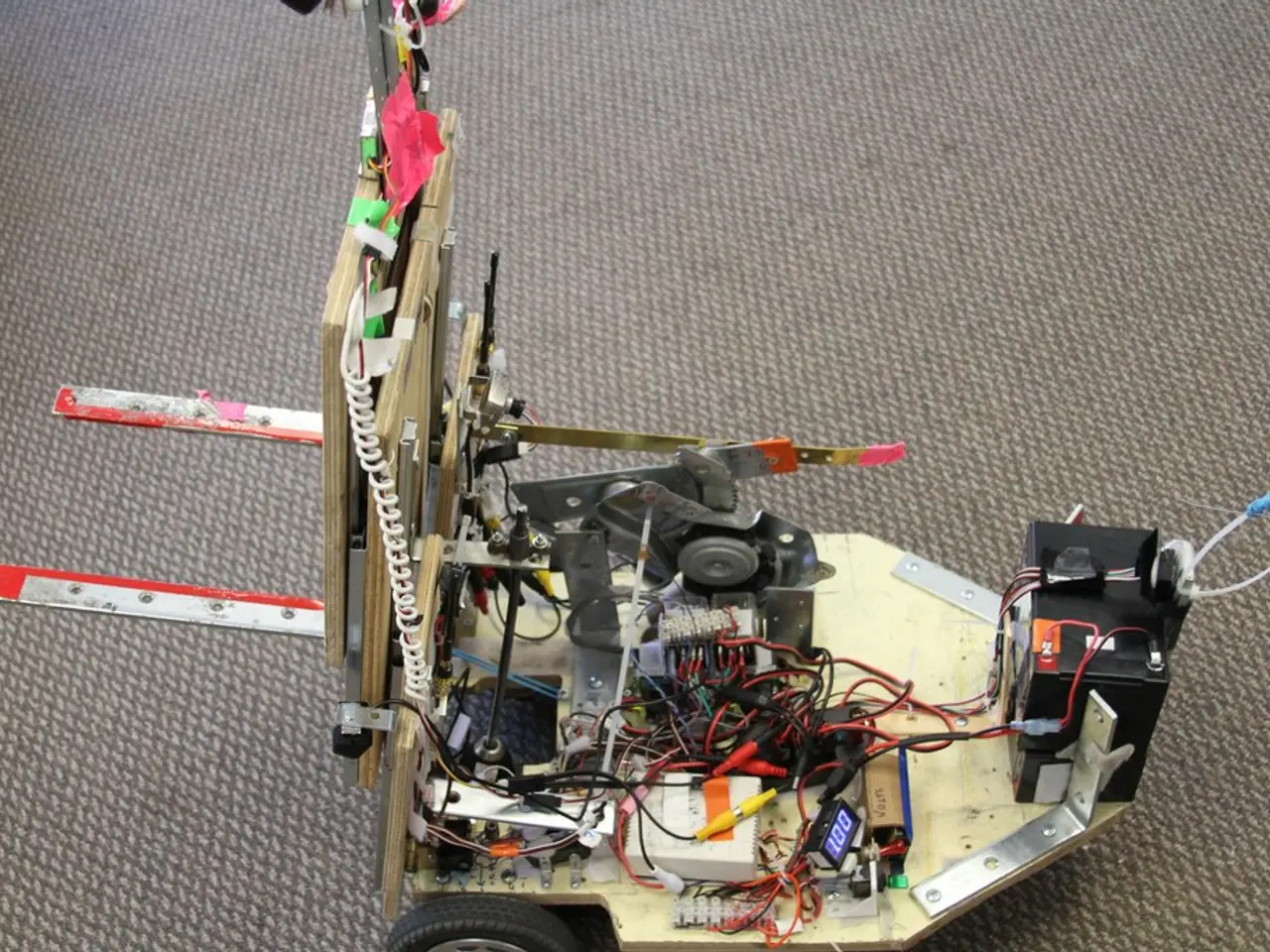Tech Revolution: A Historical Odyssey of Gadget Influence on Our Existence
From the first stone tools to the latest AI-powered gadgets, technology has been a driving force in human progress, transforming our lives in ways unimaginable. Here's a journey through significant technological milestones and their profound impacts on civilization.
**Prehistoric Era**
The use of technology began around 3.3 million years ago with the development of the first stone tools, marking the beginning of our technological journey [3]. A million years later, the control of fire enabled cooking, protection, and social development, setting the stage for further advancements [2][3].
**Ancient to Medieval Period**
Irrigation systems improved agriculture and food security around 6000 BCE, while sailing technology advanced trade and exploration around 4000 BCE [3]. Iron tools and weapons contributed to stronger societies around 1200 BCE, and the invention of gunpowder revolutionised warfare globally around 850 CE [3]. Mechanical clocks, which enabled precise timekeeping, were developed between 1250 and 1300, enhancing daily life and religious practices [3]. Gutenberg's movable type printing press, catalysing the spread of knowledge and literacy, was introduced in 1455, sparking the Renaissance [3].
**Industrial Revolution and 19th Century**
James Watt's steam engine improvement in 1765 powered factories and transportation, fueling the Industrial Revolution [3][2]. Railways using steam locomotives transformed mobility and commerce in 1804, while steamboats reduced travel time on rivers, accelerating economic exchange in 1807 [3]. Photography began in 1826/27, enabling permanent visual records [3].
**20th Century Advances**
The invention of the transistor in 1947 compacted electronics, leading to the digital age [4][2]. The launch of Sputnik 1 in 1957 initiated the Space Age and satellite communications [2]. The first working laser was invented in 1960, impacting medicine, communications, and industry [1]. ARPANET implemented packet switching in 1969, laying the foundation for the Internet [1][2]. The microprocessor was invented in 1971, enabling personal computing [1]. GPS service began in 1978, revolutionising navigation and timing [1]. Advances in medicine with CT, PET, MRI scans, and new pharmaceuticals improved diagnostic and treatment capabilities in the late 20th century [2].
**Impact on Civilization**
Early tools and fire control improved survival, diet, and social structures. The printing press and mechanical clocks standardised knowledge and societal organisation. The Industrial Revolution inventions drastically increased productivity, urbanisation, and global trade. Digital technology and the Internet transformed communication, information access, and economies worldwide. Medical technologies significantly increased life expectancy and quality of life. Space exploration expanded knowledge and created new technologies for Earth applications.
**21st Century Innovations**
Streaming services like Netflix, Spotify, and YouTube changed the way media is consumed in the last two decades, making everything on-demand. AI is making strides in healthcare, assisting doctors in diagnosing diseases, and in finance, where it predicts market trends. The invention of radio and television changed entertainment and information dissemination in the early 20th century. The iPhone, launched in 2007, marked the beginning of the smartphone era, bringing social media, apps, and an always-connected lifestyle.
**Future Advancements**
Ethical concerns, such as privacy, security, and the human impact of automation, will be major challenges in the coming years. Smart cities, powered by IoT (Internet of Things), are expected to manage energy efficiency, reduce traffic congestion, and improve urban living. Video games have become more immersive with the advent of virtual reality (VR) and augmented reality (AR) technology. Quantum computing, neural interfaces, and biotechnology are promising advancements for the future of tech gadgets. Smart home gadgets, including voice assistants, smart thermostats, security cameras, and robotic vacuum cleaners, became popular in the late 2010s. AI-powered chatbots, self-driving cars, and smart algorithms are transforming industries at an astonishing pace.
**The Beginning of Technology**
The wheel, an early invention, laid the foundation for transportation and mechanical engineering. The first "gadgets" in human history were simple stone tools used for hunting, cutting, and survival. The 1970s and 1980s saw the birth of personal computers, giving individuals the power of computing at home. Social media has turned content creation into a full-fledged industry, leading to the rise of influencers, vloggers, and digital entrepreneurs. The World Wide Web became a global phenomenon in the 1990s, revolutionising access to information and e-commerce. The telegraph enabled near-instant communication over long distances during the Industrial Revolution.
This timeline reflects how technological advancements have continuously shaped human society by improving living standards, communication, transportation, health, and knowledge dissemination across millennia [1][2][3][4].
- In the 21st century, streaming services like Netflix, Spotify, and YouTube have revolutionized media consumption, making content accessible on-demand.
- Artificial Intelligence (AI) is progressing, aiding doctors in diagnosing diseases and predicting market trends in finance.
- The iPhone, launched in 2007, marked the beginning of the smartphone era, introducing social media, apps, and an always-connected lifestyle.
- The Future holds ethical challenges such as privacy, security, and human impact of automation, while smart cities powered by IoT (Internet of Things) aim to improve urban living, manage energy efficiency, and reduce traffic congestion.




